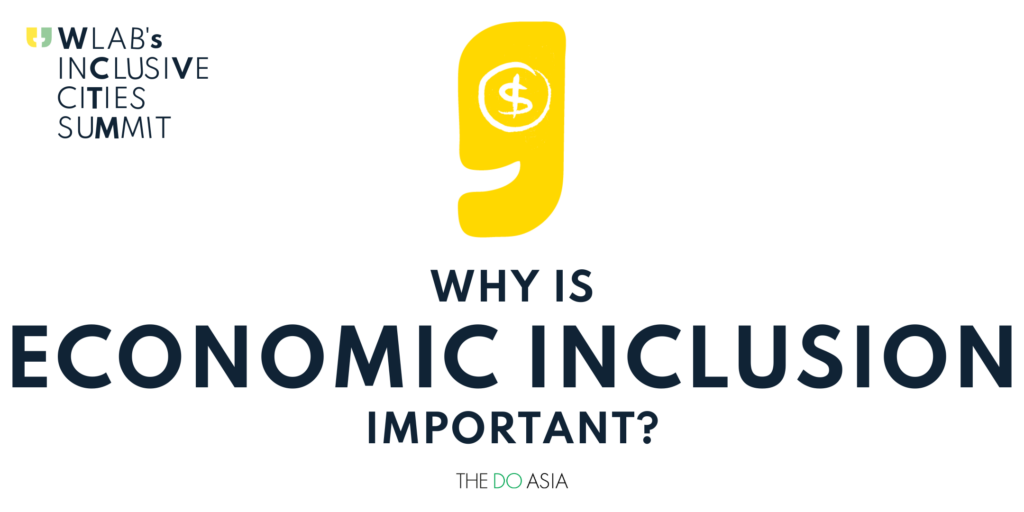What is economic inclusion?
Economic inclusion means more equitable distribution of income, wealth, jobs and economic opportunities for a city’s residents, including the underserved and vulnerable populations. No one is left behind in the economy. Society recognises that everyone, including the low-income, communities of colour, differently-abled, and more, are talents. Economic inclusion means we all deserve the opportunity to learn, innovate, and co-create our economy.
Why is economic inclusion important?
Today, more than 50% of the world’s population lives in cities, and this proportion will continue to rise to 80% by 2050.
With more people living in cities, it is high time to take action on the urgent challenges cities face, like climate change, pollution, and socioeconomic inequalities. Climate change and pollution are not only environmental issues but social and economic. It was found that the world economy can lose up to 18% of GDP from climate change. Research has shown that decreased labour effectiveness could increase inequality and poverty, especially for the low-income group.
Cities account for around 80% of the GDP generated worldwide. Urbanisation, done thoughtfully, has the potential to eradicate poverty and enhance economic growth.
Economic inclusion in cities means creating equal job opportunities, letting all citizens enjoy the benefits of economic growth, and ensuring everyone achieves financial wellbeing. When everyone gains access to resources like comprehensive education, affordable transportation, adequate income, and vocational training, the society can nurture skilled and talented people to grow the economy in an inclusive, sustainable, and regenerative way.
A related concept is financial inclusion, meaning making financial services accessible to different and underserved groups, including ethnic minorities, the elderly, and women. Financial inclusion is an enabler for 7 of the 17 SDGs, and the G20 has committed to advancing financial inclusion worldwide. The World Bank Group also emphasises the role of financial inclusion in reducing poverty and boosting shared prosperity.
The COVID-19 pandemic has, again, proven the need for digital financial inclusion, which can possibly reach underserved populations at a more affordable cost. In addition to promoting digitalisation, a lot of work on gender gap in account ownership and gender pay gap remains to be done.
Economic inclusion in Hong Kong
Equal employment opportunities and economic participation are still ongoing issues in Hong Kong. Overall, only 35.5% of women held top roles like managers or were professionals, compared to 47.5% of men in 2020. Women also had a lower labour force participation rate at 49.6%, versus men at 66.2%. Ethnic minorities face discrimination in the workplace. In a study done by the Equal Opportunities Commission of Hong Kong, employers generally agree that ethnic minorities are not hired because of their race and ethnicity.
Family discrimination in the workplace might also pose barriers to fair employment. In a study, 61.2% of employers have never heard about family status discrimination few possess good knowledge of the Family Status Discrimination Ordinance (FSDO), which was legislated in Hong Kong in 1997.
In terms of achieving financial inclusion, Hong Kong is thinking of developing its own central bank digital currencies (CBDC) assets. Hong Kong Monetary Authority is also promoting financial inclusion by encouraging banks to launch more branches and self-service banking facilities to reach people in remote areas, promoting the launch of barrier-free bank branches and ATMs, and providing banking services in languages other than Chinese and English.
How can we further achieve economic inclusion in Hong Kong? Join WICS to find out how!
Read more about:


